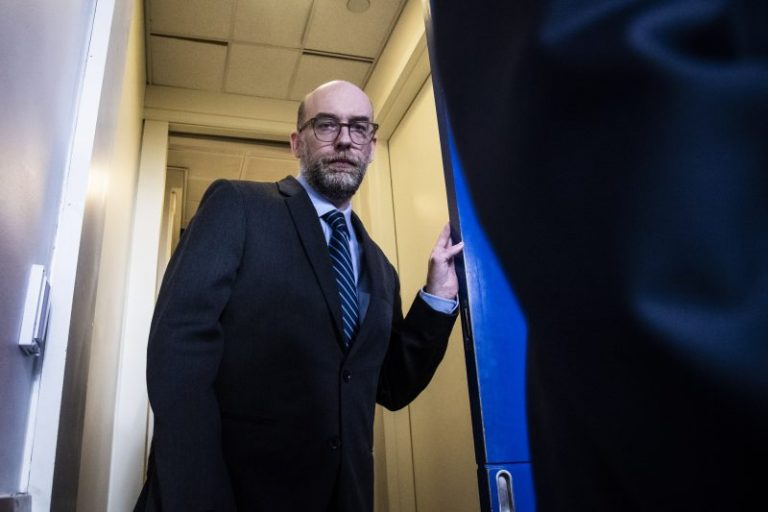
Russell Vought, a former Trump administration Office of Management and Budget director, is not a member of Congress. But Vought has been a key player in much of its drama of recent months, serving as an informal adviser to conservative House Republicans.
His influence was evident again Tuesday as hard-right GOP lawmakers sank a procedural rule vote in a show of defiance over passage last week of the bipartisan debt ceiling deal negotiated by House Speaker Kevin McCarthy (R-Calif.) and President Biden. It was the first time such a vote had failed in the House since November 2002.
Vought had previewed the strategy to The Washington Post before it was used, calling it part of “a reckoning of House conservatives” who are angry with McCarthy over how he handled the debt bill.
Vought, 47, president of a new pro-Donald Trump think tank called the Center for Renewing America, has helped make life difficult for McCarthy since he launched his speaker bid following last year’s midterm elections.
Vought advised members of the conservative House Freedom Caucus and other GOP members wary of McCarthy to extract concessions in exchange for supporting his speakership in the closely divided chamber. That led to the protracted 15 rounds of voting before McCarthy eventually prevailed.
Among the concessions: a new House panel that Vought helped push with a mission to investigate the alleged “weaponization of the federal government” under President Biden.
In the lead-up to the debt ceiling negotiations, Vought also provided a fire hose of advice to House Republicans on how to extract spending cuts and other concessions in exchange for their support. That included a 104-page memo that proposed specific spending levels for every federal agency.
“America cannot be saved unless the current grip of woke and weaponized government is broken,” Vought wrote in the proposal. “That is the central and immediate threat facing the country — the one that all our statesmen must rise tall to vanquish. The battle cannot wait.”
Some of his advice was reflected in the Limit, Save, Grow Act passed by the House in April as an opening gambit in debt ceiling negotiations. That bill went nowhere in the Senate, and the bipartisan bill that later passed was far lighter on spending cuts and other concessions from Biden.
Vought was a polarizing figure long before the current debt limit fight. His tenure in the Trump administration was marked by controversy over his past incendiary comments about Muslims and a decision to implement a freeze on aid to Ukraine that put him at the center of the first Trump impeachment.
His new think tank advocates on hot-button culture war issues, such as “exposing critical race theory.” In March, he co-authored an opinion piece for Fox News that argued that “woke ideology is now embedded within the very DNA of the federal bureaucracy.”
Vought’s group has not disclosed its funding sources, but its annual report says it took in $1.1 million in 2021. He has described its work as “acting like a shadow OMB on the outside.”
One uncomfortable reality for Vought: He oversaw enormous increases in the national debt as Trump’s OMB. The debt ballooned by staggering sums on Vought’s watch: $1 trillion in his first year, and a whopping $4 trillion in his second, as Congress agreed on a bipartisan basis to spend trillions of dollars in response to the coronavirus pandemic. Trump repeatedly overruled fiscal hawks, like Vought, in approving the new spending.
In a recent interview with The Post, Vought described the bipartisan debt deal that was adopted as “a massive missed opportunity.”
“They (suspended the debt limit) for the duration of the Biden presidency, and this town only works on the basis of must-pass bills, and you just removed the debt limit for the entirety of the presidency,” Vought said. “That’s just malpractice.”
Vought said he blamed McCarthy for giving away too much to Biden and Democrats.
“I think that he has a lot of explaining to do to his members and the American people,” Vought said.
Jeff Stein, Josh Dawsey, Isaac Arnsdorf, Leigh Ann Caldwell and Theodoric Meyer contributed to this report.


Comments are closed.